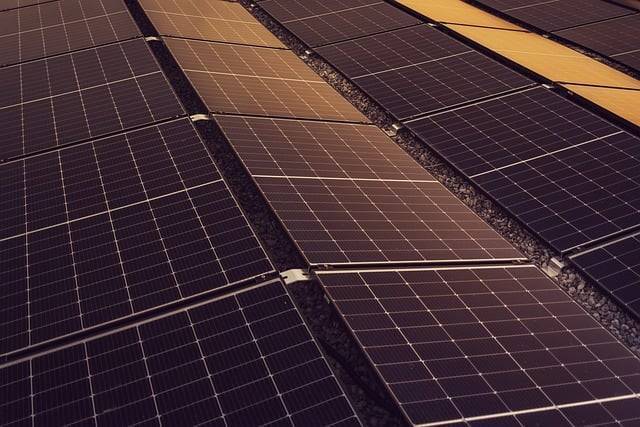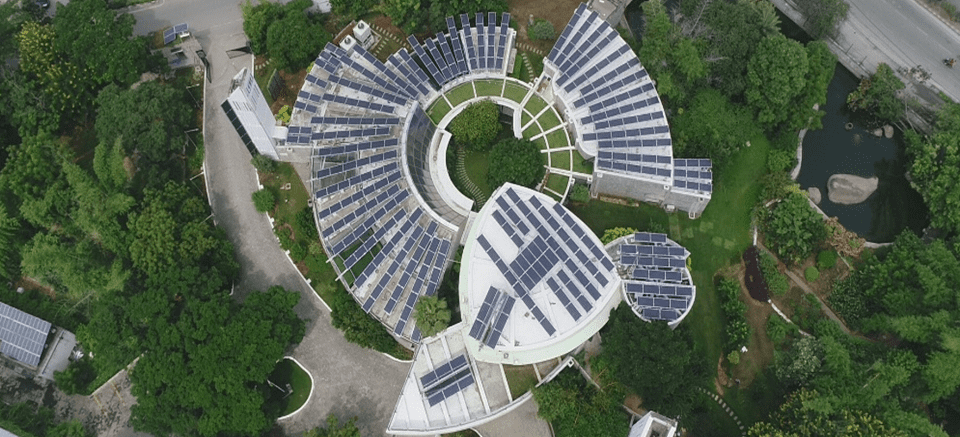Lucknow has emerged as the leading city in Uttar Pradesh for rooftop solar panel installations under the PM Surya Ghar Yojana. The scheme, launched by Prime Minister Narendra Modi on February 15, 2024, aims to increase solar energy production in residential homes across the country, providing affordable and sustainable power to citizens. Alongside Lucknow, other cities such as Kanpur, Agra, Varanasi, and Prayagraj have seen significant interest from residents, contributing to the state's rapid adoption of solar technology.
Significant Solar Panel Installations Across Uttar Pradesh
As per official data from the Uttar Pradesh government, Lucknow alone has witnessed the installation of 11,435 rooftop solar panels since the scheme's launch. Other key cities have also made impressive progress, with Varanasi installing 4,088 panels, Kanpur at 1,909, Agra with 1,364, and Prayagraj at 1,349 installations. This demonstrates a widespread acceptance of solar energy across the state, which is a promising indicator of the scheme's success.
The surge in rooftop solar panel installations is part of a larger initiative by the central and state governments to reduce dependency on conventional energy sources, lower electricity bills, and promote clean energy. Uttar Pradesh Chief Minister Yogi Adityanath and the state's Power Department are closely monitoring the progress of the scheme, setting ambitious targets for solar panel installations across all 75 districts.
Focus on Clean Energy and Free Power
The PM Surya Ghar Yojana was conceived as a long-term solution to India's electricity challenges. By tapping into the vast potential of solar energy, the scheme aims to provide nearly free power to residents in the coming years. The Uttar Pradesh government has made substantial efforts to raise awareness and encourage participation, ensuring that more households benefit from the subsidies offered under this initiative.
Chief Minister Yogi Adityanath has set a target to install rooftop solar panels on 25 lakh homes across the state. This ambitious goal is backed by substantial financial support. The central government is providing a subsidy of ₹30,000 per kilowatt (kW), while the state government offers an additional ₹15,000. Thus, a 1-kW solar rooftop system comes with a total subsidy of ₹45,000, significantly reducing the upfront cost for homeowners. For larger systems, such as 2-kW installations, the combined subsidy rises to ₹90,000 (₹60,000 from the center and ₹30,000 from the state), while installations of 3-kW and above receive a subsidy of ₹1.08 lakh.
Solar Adoption Gains Momentum
The UP Power Department, under the leadership of Chief Secretary Manoj Kumar Singh, has been actively driving the adoption of solar energy. Singh recently reviewed the progress of the scheme and urged the department to expedite the installation process to meet the government’s target. The department has set specific goals for all seven DISCOMs (Distribution Companies) in the state, ensuring that each district contributes to the overall progress of the PM Surya Ghar Yojana.
With over 17.75 lakh registrations completed so far, the scheme has garnered immense interest from residents across Uttar Pradesh. To date, approximately 3,200 homes have already installed solar rooftop systems, a significant milestone in the state’s journey toward cleaner energy. The ease of registration, financial incentives, and the growing awareness about the benefits of solar energy have collectively contributed to the scheme’s success.
The Road Ahead for Uttar Pradesh's Solar Energy Goals
The PM Surya Ghar Yojana is a crucial part of India's larger efforts to transition toward renewable energy sources and reduce the country's carbon footprint. Solar energy, being a clean and abundant resource, offers a sustainable solution to meet the rising energy demands of a growing population. The government’s support through subsidies makes it easier for homeowners to invest in solar technology, which will, in turn, reduce their long-term energy costs.
Looking ahead, the success of the scheme in Uttar Pradesh is likely to inspire other states to adopt similar measures, further accelerating India's transition to renewable energy. The rapid growth of solar installations in cities like Lucknow and Varanasi indicates that residents are increasingly recognizing the economic and environmental benefits of solar energy.
Uttar Pradesh is well on its way to becoming a model state for solar energy adoption. The combined efforts of residents, the government, and DISCOMs will ensure that the state achieves its ambitious targets and makes a meaningful contribution to India's renewable energy goals.









.png)